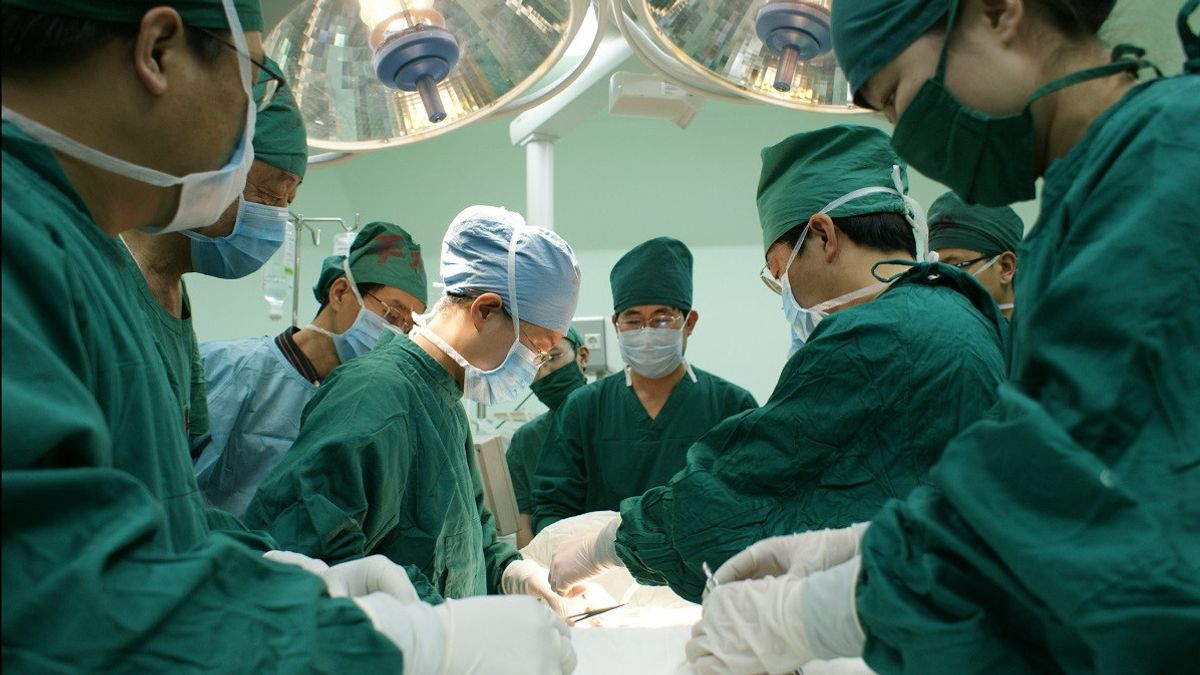JAKARTA - A United States (US) man suffering from terminal heart disease underwent a genetically modified pig heart transplant, the first operation of this method and three days after the patient is doing well, doctors reported on Monday.
The surgery, which was carried out by a team at the University of Maryland Medicine, is one of the first to demonstrate the feasibility of transplanting part of the heart into humans, a field made possible by new gene engineering tools.
If the operation proves successful, scientists hope the pig organs can help alleviate the ongoing shortage of organ donors.
"This is a groundbreaking surgery and brings us one step closer to solving the organ shortage crisis. There are not enough donor human hearts available to meet the long list of potential recipients," said Dr. Bartley Griffith, who performed the pig heart transplant surgery on the patient, said in a statement, citing Reuters January 11.
"We proceed with caution, but we are also optimistic that this world's first surgery will provide important new options for patients in the future," added Griffith.
For 57-year-old David Bennett of Maryland, a heart transplant is his last resort.
"It's a choice to die or have this transplant. I want to live. I know this is a shot in the dark, but it's my last resort," Bennett said the day before his surgery, according to a statement released by the university.
To continue experimental operations, the university obtained emergency clearance from the US Food and Drug Administration (FDA) on New Year's Eve through its supervised use program.
"The FDA is using our data and our data on guinea pigs, to allow transplants in patients with end-stage heart disease who have no other treatment options," said Dr. Muhammad Mohiuddin, who heads the xenotransplantation program, transplanting animal organs into humans.
About 110,000 Americans are currently waiting for an organ transplant, and more than 6,000 patients die each year before getting one, according to organdonor.gov.
The genetically modified pig heart for Bennett's donor was provided by Revvicor, a regenerative medicine company based in Blacksburg, Virginia. On the morning of the operation, the transplant team removed the pig's heart and placed it in a special device to maintain its function until surgery.
It is known that pigs have long been a lucrative potential source of transplants because their organs are very similar to those of humans. A pig's heart at the time of slaughter, for example, is about the size of an adult human heart.
Apart from the heart, other organs from pigs that are being studied for transplantation into humans include the kidneys, liver and lungs.
Previous attempts at transplanting pigs to humans have failed, due to genetic differences leading to organ rejection or viruses that pose a risk of infection.
Scientists have overcome that problem by engineering a potentially harmful gene. In the heart implanted in Bennett, three genes previously associated with organ rejection were removed from the donor pig, and six human genes associated with immune acceptance were inserted into the pig genome.
The researchers also deleted the pig's gene to prevent the overgrowth of pig heart tissue.
Please note, this work was funded in part with a US$15.7 million research grant to evaluate the genetically modified pork liver Revivicor in the study.
In addition to the genetic changes in the pig's heart, Bennett received an experimental anti-rejection drug made by Kiniksa Pharmaceuticals based in Lexington, Mass.
The English, Chinese, Japanese, Arabic, and French versions are automatically generated by the AI. So there may still be inaccuracies in translating, please always see Indonesian as our main language. (system supported by DigitalSiber.id)













